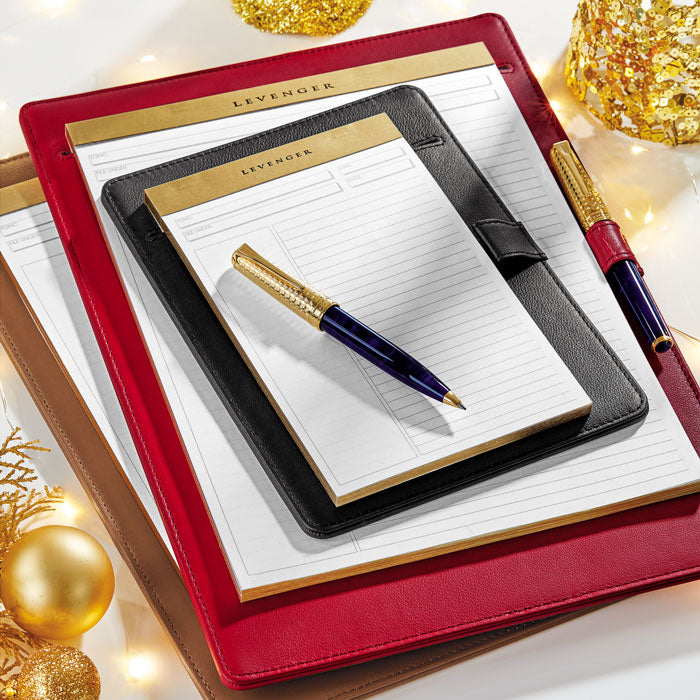This Christmas morning, there will certainly be lots of digital devices under trees, including one or two at our house. Even I, a former purveyor of paper and pens, love my smartphone, laptop and Kindle. Yet despite the explosive growth of personal electronics, Levenger still sells leather-bound paper notebooks and pens filled with ink. What gives? Are we selling buggy whips and just too stubborn to face reality?
Maybe, but our civilization was built with paper and ink. The US Constitution, our laws, our landmark buildings and many famous works of art were first sketched on paper by hand with pencil and pen. And this thin, flexible and sustainable technology of paper and ink, while challenged by digital devices, is not about to go away just yet.
Think of guitars. The guitar players I know play both electric and acoustic guitars, those centuries-old wooden wonders that release their magic without need of electronics.
Think of boats. Many of the powerboat owners I know, including myself, also own sailboats, enjoying, at least in a daysailer, the ancient delight of harnessing the wind in order to slip gracefully through the swells.
Think of your own kitchen. You probably own electronic appliances for cutting and chopping but you also use knives, descendants of some of the oldest tools humans ever made.
“Once technology becomes obsolete, it’s free to do what it does best.” If Marshall McLuhan didn’t say that, some other sage did because it’s exactly right. Precisely because we don’t need paper anymore, we are free to make notebooks people don’t have to use, but want to use—notebooks of enough quality that they make the act of writing or sketching by hand a real joy.
“Save a plant. Don’t eat vegetables.”
I find it mildly annoying when someone’s email signature wags a finger with “Save a tree. Don’t print….” It’s a bit like admonishing us to not eat vegetables so that we save plants.
We shouldn’t waste resources, for sure, but trees that are grown for paper are a crop not unlike corn or cucumbers. except that instead of being harvested annually, trees are harvested every generation or so (about 20 years). When forested sustainably, which to my knowledge the vast majority of forests are, paper is not only environmentally friendly, but civilization friendly.
Levenger customers are the kinds of people who read, think, write, draw, sketch and design our bright futures. If printing out an email and using paper notebooks helps them, then it’s one of the very best uses of renewable resources.
Will paper survive this century?
Recently I spoke at Lynn University in nearby Boca Raton, Florida, to a class studying global business. All twenty or so students had their laptops open and their phones nearby. One student in the front was writing with an electronic pen on her glass tablet. But about half of these undergraduates also had paper notebooks and pens and were using them. These students were born in this century.
The reality is, paper is now optional. But for half of the students in this particular class, even though they grew up tapping glass, even though their university is known for its iPad-powered learning initiative, they still brought paper notebooks to class.
Perhaps paper helps us focus. Perhaps, in our pieces of paper, we find the peace of paper—the quiet, undistracted tableau that creators have enjoyed for centuries, and that sometimes eludes us when on our pulsing screens.
I do know that the staff at Levenger will continue their mission to build the most advanced obsolete technology they can, deploying paper, leather and ink in new ways, in order to inspire the creatives of America. And some of those Levenger creations will also be under Christmas trees this year, alongside their digital descendants.
Happy holidays, thank you for your business, and have a creative new year,
Steve








